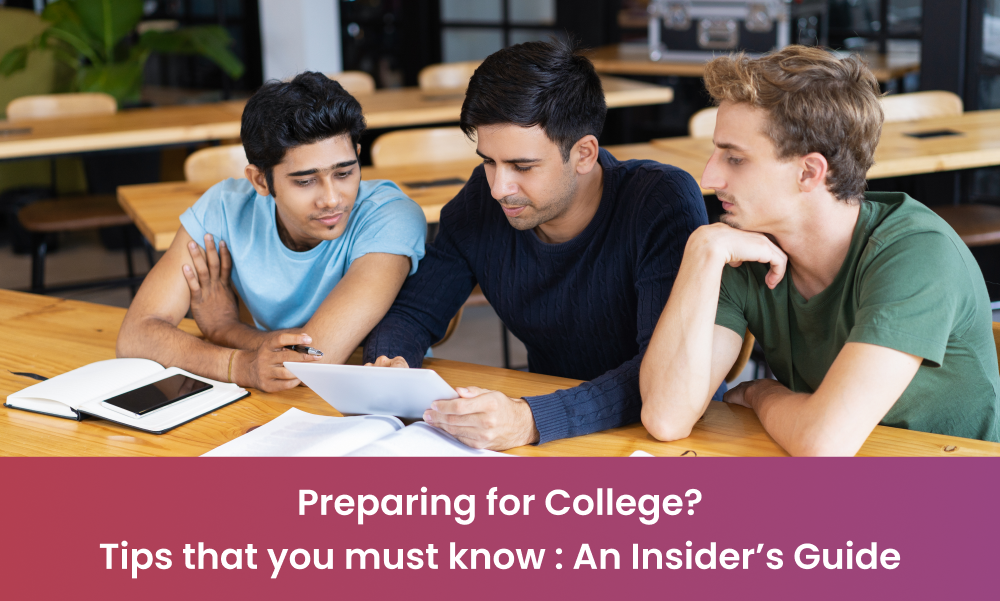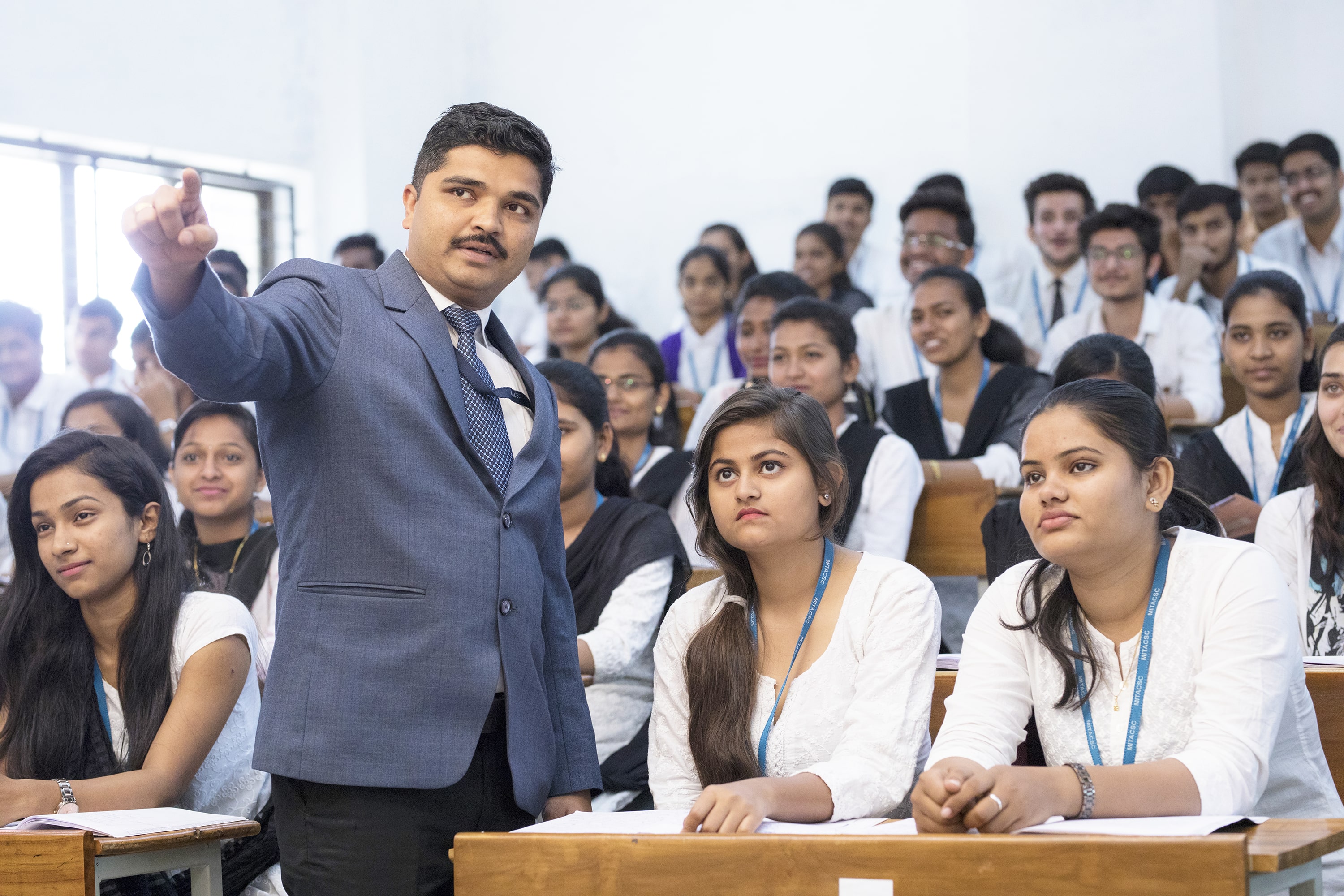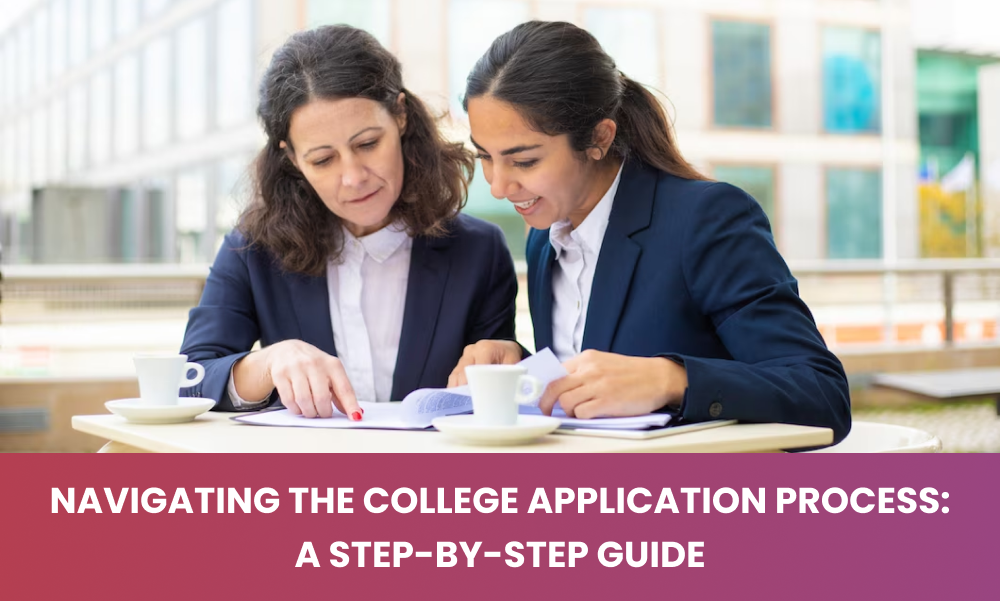
Preparing for College? Tips that you must know : An Insider’s Guide
School is an extraordinary time to learn, investigate, create, and dream. At the point when you start your freshman year, you may not know where you want to set off for college or what you want to study. However, there are things you can do that will move you towards being prepared to choose, apply, and be acknowledged to an extraordinary college. You need to be ready for the difficulties you will confront once you show up and begin your college education. The accompanying tips and subtleties can assist you with preparing for academic success in college.
1. Begin Planning for College Now!
If you are a school student, or will before long be a school student, this is the ideal opportunity to begin preparing for your post-optional education. College might appear as though it's distant, however somehow or another, it will be here before you know it! Preparing for a college education takes time, effort, and commitment.
When should I begin preparing for college?
Secondary school gives many opportunities, however it really depends on you to make the most of them. You can capitalize on your school for a long time by thinking ahead and figuring out how to plan for the future. Venture out and decide that you will capitalize on the next few years, realizing your ingenuity will pay off later!
2. Take the Right School Classes to Plan for College
Plan to buckle down in school. Taking the most challenging classes accessible (AP, IB, Double Enlistment and Respects classes) will help you in more ways than one. As well as learning the course satisfactorily, like Variable based math, Science, or a foreign language, college preliminary classes will likewise foster your skills in note-taking, considering, composing, test-taking, time management, decisive reasoning, and more. These important skills will set you up for the thoroughness of college classes.
How would I plan for college academically?
The necessary score to procure double credit will change from one college to another. Contingent upon your score and your expected major, the granted college credit might permit you to forgo a class, begin in the following course level, or satisfy elective credits.
3. Engage in Extracurricular Activities
Contribution in activities beyond schoolwork makes school much more fascinating and fun. These extracurricular activities additionally give opportunities to acquire proficiencies you were unable to learn through course books and tests alone. Through extracurricular activities, you can foster important skills, like cooperation, public talking, imagination, initiative, and mindfulness.
What extracurricular activities should I truly do in school?
The initial step is to investigate. As you start school, you will find you have many new opportunities — sports, theater, music, workmanship, discussion, and software engineering, just to give some examples. While you can't do everything, attempt to engage in as many clubs, groups, and activities that you see as fascinating. There is definitely not an expected one-size-fits-all rundown of activities — what is important is that you track down clubs and projects that interest you!

4. Get to Know your School Guidance Counselor
You probably have a school guidance counselor doled out to you. Make a meeting with that person! You don't need to hold on until they contact you. It is important to interface with your guidance counselor consistently, beginning with your freshman year.
Who can assist me with being ready for college?
Your guidance counselor knows your school contributions and opportunities, including visits from college confirmations counselors, college fairs, test prep classes, grants, and significantly more. Your guidance counselor is likewise an incredible asset for social and daily encouragement as well as vocation and college readiness. Unfortunately, most guidance counselors are incredibly occupied and exhausted. Make their occupation as simple as could be expected. Come to your meeting with your inquiries prepared and don't anticipate taking a lot of time at every arrangement. Thank your guidance counselor for information, help, and exhortation. Recollect that you might need a letter of proposal from your guidance counselor. To compose a decent letter, your guidance counselor needs to know your best qualities and what stands out about you.
College Readiness
The school years give an abundance of opportunities to foster critical thinking skills and maturity needed for success in college. Take challenging courses that permit you to expand your academic spotlight and expand on your future education goals. Engage in extracurricular activities, find your interests and seek after your fantasies.
What is College Readiness?
College readiness incorporates all parts of your academic preparation, including the fundamental skills of note-taking, understanding texts, reading up for tests, and composing expositions and exploration papers. It includes creating life skills, for example, time management, objective setting, and managing cash. What's more, college readiness requires a degree of maturity that will permit you to successfully explore the abundance of opportunity, obligations, and opportunities that college life gives. A piece of that is knowing yourself, your assets and shortcomings and stepping up to the plate and work on regions that you need to create. This is a thrilling time as you fill in understanding of your basic beliefs and fundamental interests. Your capacity to fabricate sound relationships will permit you to develop, team up and discuss successfully with others.
Conclusion
Really bend over backward to meet with and gain from your guidance counselors, coaches and other good examples in your life. Permitting these trusted and compelling good examples assist you with fostering your assets and track down imaginative ways of chipping away at your shortcomings. Remain organized and accept notes as you research colleges and apply for confirmations. When you get to college, you will keep on developing, learn and advance in your academic goals as a whole. The time you put into college preparation and work you put in now will establish the groundwork for academic success and a lifetime of learning.








